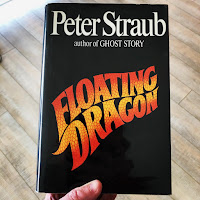I'm drawn to works related to the Holocaust. Although I'm not Jewish, I'm a gay man and gays were also persecuted literally to death by the German Nazi regime. I consider those unfortunate gay men to be my ancestors, in a sense, and so I relate deeply to all the innocent victims targeted by the Nazis, whether they were Jews, gays, Poles, Russians, POWs, the differently abled, the sick, the mentally ill, and of course their political opponents. I've read all 1600 pages of William Shirer's THE RISE AND FALL OF THE THIRD REICH, which recounts everything from the Weimar era until just after the end of WWII. I've read many works of nonfiction and fiction related to the Holocaust. I'll never stop reading about it, because I never want to stop reading about it. In this sense, I may be different from many readers who feel reluctant to dive into literature about such a disturbing era.
For any such readers, I'd want them to know that THE INCANDESCENT THREADS is overall quite a positive novel, with an optimistic mood and some kind of faith in humanity in general, even if this faith is often borne out only by the actions of "a few" brave persons. I don't like to provide spoilers, so I won't. But even from the cover copy, you would learn that THE INCANDESCENT THREADS concerns itself with the lives of the only two members of a Polish Jewish family to have survived the Holocaust - two cousins, Benjamin and Shelly. Both happen to be very lucky. Benjamin is hidden away throughout most of the war by brave and kindly souls. Shelly manages by luck to escape Europe to a relative freedom in Algeria. They both later resettle in North America and grow their own relationships and their own families. Through a variety of points of view in this novel, via different members of their families, we learn all the amazing and wonderful facets of their lives, and how they've managed to keep the Zarco clan alive - together with stories of appalling tragedy and cruelty at the hands of Nazis and their collaborators.
I cannot give any more details about the story without spoiling it. The writing is beautiful and poignant. All of the characters are well-rounded people, deftly drawn, and highly memorable. But I will say I found the novel highly relevant to today, when so many political lies are perpetuated all over the world at the expense of minority populations, who are so likely to face persecution when the indifferent majorities allow Fascists to come to power and then openly collaborate with these Fascists' goals. Contrary to these sinister forces still at work all around us, THE INCANDESCENT THREADS offers a testament to the courage and strength displayed by everyday normal human beings in the face of true evil. I cannot recommend this novel highly enough. It will stay with me forever. THE INCANDESCENT THREADS deserves a wide readership.




